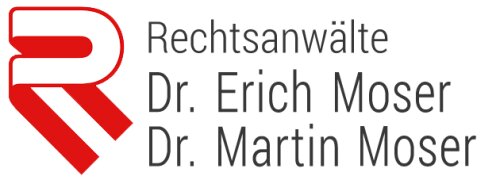Best Hiring & Firing Lawyers in Austria
Share your needs with us, get contacted by law firms.
Free. Takes 2 min.
Or refine your search by selecting a city:
List of the best lawyers in Austria
About Hiring & Firing Law in Austria
Hiring and firing laws in Austria are predominantly governed by the Austrian Labor Law, which establishes the framework for employment relationships. The law stipulates rights and obligations for both employers and employees, ensuring fair treatment, workplace safety, and equitable termination processes. Key areas include contracts of employment, recruitment procedures, severance pay, and employee protection against unfair dismissal.
Why You May Need a Lawyer
Legal advice may be necessary in several scenarios including drafting or reviewing employment contracts, navigating disputes related to wrongful termination, dealing with discrimination cases, and understanding the legal nuances of collective bargaining agreements. Employers often seek legal counsel to ensure compliance with local regulations during hiring and firing processes, while employees might seek advice to protect their rights or pursue claims of unfair dismissal.
Local Laws Overview
Austrian labor laws emphasize protecting employees, particularly regarding dismissal and termination notices. Key elements include:
- Employment Contracts: Must conform to statutory requirements and may be subject to collective agreements.
- Termination Notice Periods: Vary depending on the duration of employment and the nature of the employment contract.
- Severance Payments: Regulated by the Employee Protection Act, which stipulates conditions under which severance pay must be provided.
- Protection Against Unfair Dismissal: Employees can challenge dismissals through the labor court if deemed unjust.
- Non-discrimination Policies: Employers must adhere to anti-discrimination laws during hiring and employment practices.
Frequently Asked Questions
1. What constitutes a legal employment contract in Austria?
An employment contract must comply with minimum statutory requirements, evidencing mutual agreement, and include essential terms like job responsibilities, remuneration, and working hours.
2. What are the typical notice periods for termination?
Notice periods generally depend on the tenure of employment. Typically, the longer the employment, the longer the notice period, starting from two weeks for probationary periods up to five months for longer tenures.
3. Are there specific reasons required to terminate an employee?
Under Austrian law, employers must justify dismissal with valid reasons such as misconduct, economic redundancy, or incapability after required notice periods unless it's a probationary period.
4. How does the Employee Protection Act affect severance payments?
The Act stipulates that employees are entitled to severance pay upon termination by the employer, contingent on certain conditions being met, such as length of service.
5. Can discrimination claims be filed during the employment process?
Yes, employees and job applicants can file claims if they believe they've been discriminated against during recruitment or employment, under the Equal Treatment Act.
6. What rights do employees have in case of wrongful termination?
Employees can challenge wrongful termination in labor court, seeking reinstatement or compensation if the termination is found to be unjust.
7. Is a written employment contract mandatory?
While oral agreements are legally binding, it is advisable to have written contracts to avoid disputes and clarify terms.
8. How should redundancies be handled?
Employers must follow precise procedures when handling redundancies, including consultation with works councils if applicable, and providing adequate notice and support.
9. Can foreign nationals work in Austria without restrictions?
Non-EU nationals require specific work permits, while EU, EEA, and Swiss citizens are entitled to work without permits, subject to registration requirements.
10. What constitutes fair treatment during layoffs?
Fair treatment involves following statutory procedures, providing reasonable notice, severance packages, and ensuring non-discriminatory practices during layoffs.
Additional Resources
Consider reaching out to the following resources for additional support:
- The Austrian Chamber of Commerce: Offers guidance for businesses on employment law.
- Federal Ministry of Labour: Provides detailed information on employment rights and obligations.
- AK (Arbeiterkammer): The Austrian Chamber of Labour offers worker protection advice.
- Ombud for Equal Treatment: Assists with discrimination claims.
Next Steps
If you need legal assistance with hiring and firing matters in Austria, consider these steps:
- Consult a Legal Expert: Engage with a lawyer specializing in Austrian labor law to evaluate your situation.
- Gather Documentation: Compile all relevant documents, such as employment contracts, termination letters, and correspondences, to prepare for consultations.
- Research and Resources: Utilize the additional resources for understanding your rights and obligations better.
- Act Promptly: Keep in mind statutory time frames for claims, especially around dismissals and severance disputes.
Lawzana helps you find the best lawyers and law firms in Austria through a curated and pre-screened list of qualified legal professionals. Our platform offers rankings and detailed profiles of attorneys and law firms, allowing you to compare based on practice areas, including Hiring & Firing, experience, and client feedback.
Each profile includes a description of the firm's areas of practice, client reviews, team members and partners, year of establishment, spoken languages, office locations, contact information, social media presence, and any published articles or resources. Most firms on our platform speak English and are experienced in both local and international legal matters.
Get a quote from top-rated law firms in Austria — quickly, securely, and without unnecessary hassle.
Disclaimer:
The information provided on this page is for general informational purposes only and does not constitute legal advice. While we strive to ensure the accuracy and relevance of the content, legal information may change over time, and interpretations of the law can vary. You should always consult with a qualified legal professional for advice specific to your situation.
We disclaim all liability for actions taken or not taken based on the content of this page. If you believe any information is incorrect or outdated, please contact us, and we will review and update it where appropriate.
Browse hiring & firing law firms by city in Austria
Refine your search by selecting a city.
















